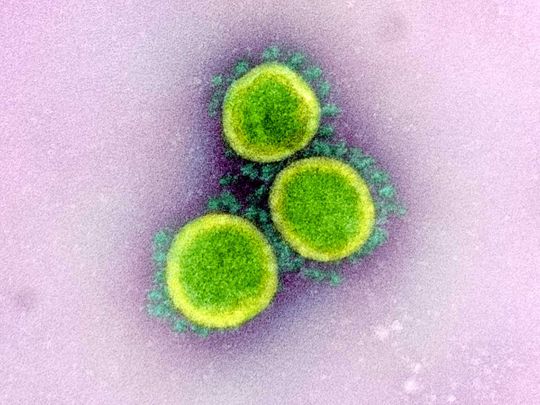
New COVID-19 laser tests could be a gamechanger
Its speed and accuracy will help medical professionals respond to infected patients faster
by Gulf NewsThe world battling the coronavirus pandemic is relying on the reverse transcription–polymerase chain reaction test known as real-time RT-PCR to detect the pathogen. The test is accurate, and hundreds of thousands, possibly millions, of samples are screened every day in 196 countries affected by the disease. But there are two significant challenges — the testing cycle usually takes 24 hours, 48 in some countries with fewer laboratories. Given the high volume of samples, test results take longer and is a big hurdle in tackling the disease, which requires a fast response.
Here in the UAE, a new laser-enabled test developed by an Abu Dhabi-based company may prove to be a gamechanger for two reasons — it is fast and cheaper compared to RT-PCR. Developed by QuantLase Imaging Lab, it can detect pathogens, including a virus, while maintaining the same level of accuracy. The company said it has tested 6,000 samples collected from 13 sites and up to 90 per cent of results were accurate. Priced at Dh100, this test is cheaper than other global standard kits which cost up to Dh200 a piece.
The test works using a blood sample that is lit by laser. When the light is scattered by cells, interference is used to create patterns on a screen. Healthy blood cells create clear circular rings, whereas infected blood cells produce a more diffuse pattern. The technology, awaiting government approval, holds promise and must be independently reviewed quickly so that it can be deployed if results are satisfactory.
The biggest headache today is the negative results thrown up by COVID-19 test kits. These false negatives have disastrous consequences for health authorities, impacting their response. Robust trials must be carried by independent bodies to rule out false negatives by this laser-enabled kit by mass testing in densely populated localities. These test results during the trial stage must be randomly double-checked to judge its efficacy.
During the pandemic, the UAE’s scientific community is doing a commendable job by coming up with indigenously developed solutions. Last month, Shaikh Khalifa Medical City doctors announced a new stem cell therapy to repair lungs damaged by the disease. During trials, this therapy helped reduce symptoms in positive patients.
Similarly, a team of local and international experts unveiled a prototype of medical ventilator designed and assembled in the UAE. These efforts are proof that the country’s scientific and medical community are seeking solutions and contributing to the global efforts to fight the pandemic. These innovations must get support from the authorities so that they can be quickly deployed.